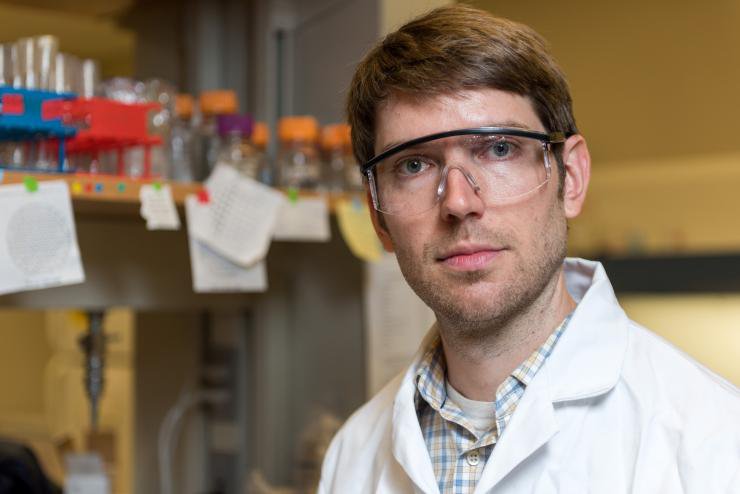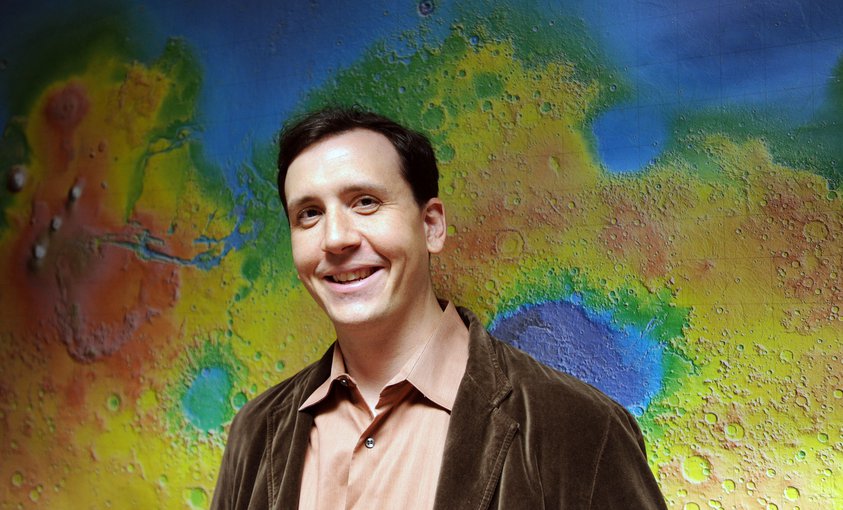Written byMiki Huynh

Oct. 26, 2016
Feature Story
Early Career Scientists Receive Honors
Two early career scientists who are active in the field of astrobiology have received recognition for their achievements.

Will Ratcliff makes Popular Science's 2016 Brilliant 10 List. Image source: Georgia Tech
Will Ratcliff, an assistant professor at Georgia Tech, made Popular Science’s Brilliant 10 List, and has also been named a Packard Fellow. He is recognized for his research in cellular evolution, in particular a study of yeast cells where, through generations of selection, he was able to make the yeast evolve from single cells to robust multicellular clusters shaped like snowflakes. The findings were highlighted in numerous publications, including Quanta Magazine. Studying the shift of the single yeast cells towards group-centric continuance and reproduction provides a way to look at mechanisms and genetic mutations that might lead to the evolution of multicellular organisms.
The research was funded in part by the Exobiology element of the NASA Astrobiology Program and the National Science Foundation. Ratcliff is also part of the NASA Astrobiology Institute (NAI) team based at Georgia Tech (formerly the University of Montana, Missoula).
[Source: Georgia Tech]

Shawn Domagal-Goldman honored with a NASA Early Career Achievement Medal. Image source: NASA
Shawn Domagal-Goldman, a research scientist at NASA Goddard Space Flight Center, received a NASA Early Career Achievement Medal in September of 2016. His areas of research include characterizing the surface of extrasolar planets, creating computer models of planetary atmospheres, and modeling astrobiologically-significant chemical reactions.
He was involved in the Exoplanet Biosignatures Workshop that took place July 2016, working alongside other experts to define what constitutes a biosignature (which he had previously discovered was not simply the presence of oxygen), an important task in order to narrow down candidates for future exoplanet observation missions. His work characterizing the environment and identifying biosignatures on Earth throughout its evolution also aids in figuring out the possible atmospheric conditions and habitability of exoplanets.
Domagal-Goldman was co-lead editor of the second version of the Astrobiology Primer published in 2016, a guide to introduce graduate students to astrobiology. He is a member of the NAIVirtual Planetary Laboratory team at the University of Washington and of the Nexus for Exoplanet System Science (NExSS) network.
[Source: NASA Goddard Space Flight Center]